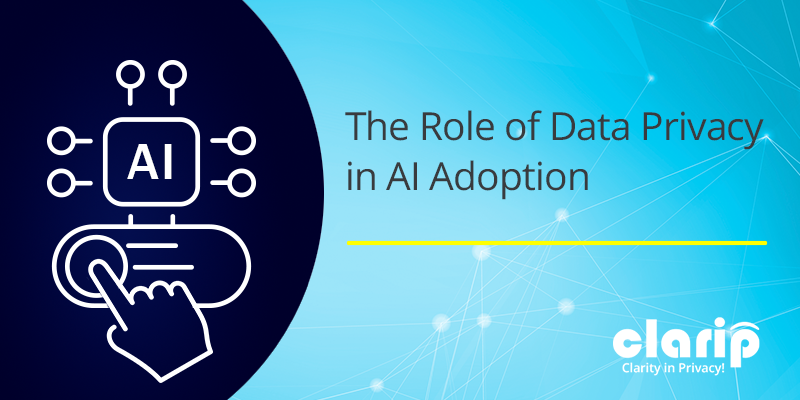The Role of Data Privacy in AI Adoption

Identity security is paramount in the era of artificial intelligence (AI). Chief Information Security Officers (CISOs), Chief Information Officers (CIOs), Chief Technology Officers (CTOs), and Chief Security Officers (CSOs) globally recognize the transformative potential of AI. According to a recent survey of 125 technology-focused executives, 89% see AI as a “positive” or “very positive” force. However, concerns about AI’s implications for cybersecurity and data privacy are significant, with 71% of respondents expressing worries about cybersecurity and 74% about data privacy. Furthermore, 39% of respondents are “moderately” or “extremely” concerned about AI’s impact on security.
Balancing Excitement with Caution
Despite the concerns, executives remain optimistic about AI’s potential. Almost all surveyed executives reported using AI within their organizations. In terms of AI’s global impact, 31% of respondents described it as “very positive” and 58% as “positive.” Regional variations exist, with 39% of EMEA respondents viewing AI’s impact as “very positive,” compared to 29% in the Americas and 27% in APAC.
Confidence in managing AI is high among executives, with 92% describing themselves as either “very confident” (32%) or “confident” (60%) in making AI-related decisions. AI is used extensively within organizations, with 64% of respondents stating that many or nearly all teams use AI. Additionally, 58% of organizations have developed guidelines for AI usage, and another 32% plan to do so within the next year.
However, there is an underlying apprehension. Nearly half (46%) of executives feel equal parts concern and excitement about AI becoming more integrated into daily life. Although 44% are more excited than worried, doubts about organizations’ ability to combat AI-powered attacks persist. Only 34% of respondents are “slightly concerned” about security, while 28% are “moderately concerned,” and 11% are “very concerned.”
Implementing Robust Data Privacy Solutions for AI Adoption
To successfully integrate AI while safeguarding data privacy, organizations must implement robust data privacy solutions. These measures are essential to ensure that AI adoption does not compromise sensitive information or violate privacy regulations.
- Data Encryption: Encrypting data both at rest and in transit is a fundamental step in protecting sensitive information from unauthorized access. This ensures that even if data is intercepted or accessed unlawfully, it remains unreadable and secure.
- Anonymization and Pseudonymization: Implementing techniques to anonymize or pseudonymize data can significantly reduce the risk of exposing personal information. These methods transform identifiable data into a format that cannot be easily traced back to an individual, thereby enhancing privacy.
- Regular Audits and Compliance Checks: Conducting regular audits and completing compliance checks ensures that data privacy measures are up-to-date and aligned with the latest regulations and standards. This helps organizations identify potential vulnerabilities and rectify them promptly.
- Data Minimization: Adopting data minimization practices involves collecting only the data that is necessary for a specific purpose and retaining it only for as long as required. This reduces the risk of unnecessary data exposure and enhances overall data privacy.
- Access Controls and Monitoring: Implementing strict access controls and continuous monitoring helps in managing who can access data and how it is used. This includes employing role-based access controls and monitoring user activities to detect and respond to any suspicious behavior.
Recommendations for Secure AI Adoption
To foster a culture of security and data safety around AI, the following recommendations can be valuable:
- Enhance Security Infrastructure: Implement or strengthen modern identity management platforms, mandate multi-factor authentication (MFA), and enforce the principle of least privilege.
- Collaborate with Industry and Regulators: Engage with peers, industry experts, and government regulators to share insights and best practices for responsible AI collaboration.
- Educate and Train Employees: Provide hands-on experience and training in AI best practices to prepare the workforce for AI adoption.
“A focus on risk identification, mitigation, and management is needed to ensure that AI adoption works within the boundaries of acceptable risk,” stated a CIO in the APAC healthcare and pharmaceutical sector.
Conclusion
AI holds immense promise, but its adoption comes with significant responsibilities. Identity security and data privacy are crucial components of this transition. By implementing robust data privacy solutions and fostering a culture of security awareness, organizations can harness the benefits of AI while mitigating potential risks. As a CTO in the APAC healthcare and pharmaceutical industry noted, “Without educating our internal team sufficiently on the threats of AI, I believe we are opening ourselves up to greater risk of a human-enabled security threat.”
In conclusion, AI can revolutionize industries and improve efficiency, but only if it is adopted with a keen awareness of its potential risks and a strong commitment to data privacy and security.
Click here to learn more about our Preference and Consent Management Platform! Clarip takes enterprise privacy governance to the next level and helps organizations reduce risks, engage better, and gain customers’ trust! Contact us at www.clarip.com or call Clarip at 1-888-252-5653 for a demo.
Email Now:
Mike Mango, VP of Sales
mmango@clarip.com

 Data Risk Intelligence
Data Risk Intelligence Automated Data Mapping
Automated Data Mapping Do Not Sell/Do Not Share
Do Not Sell/Do Not Share Cookie Banner Solutions
Cookie Banner Solutions Consent & Preferences
Consent & Preferences Data Rights Requests
Data Rights Requests
